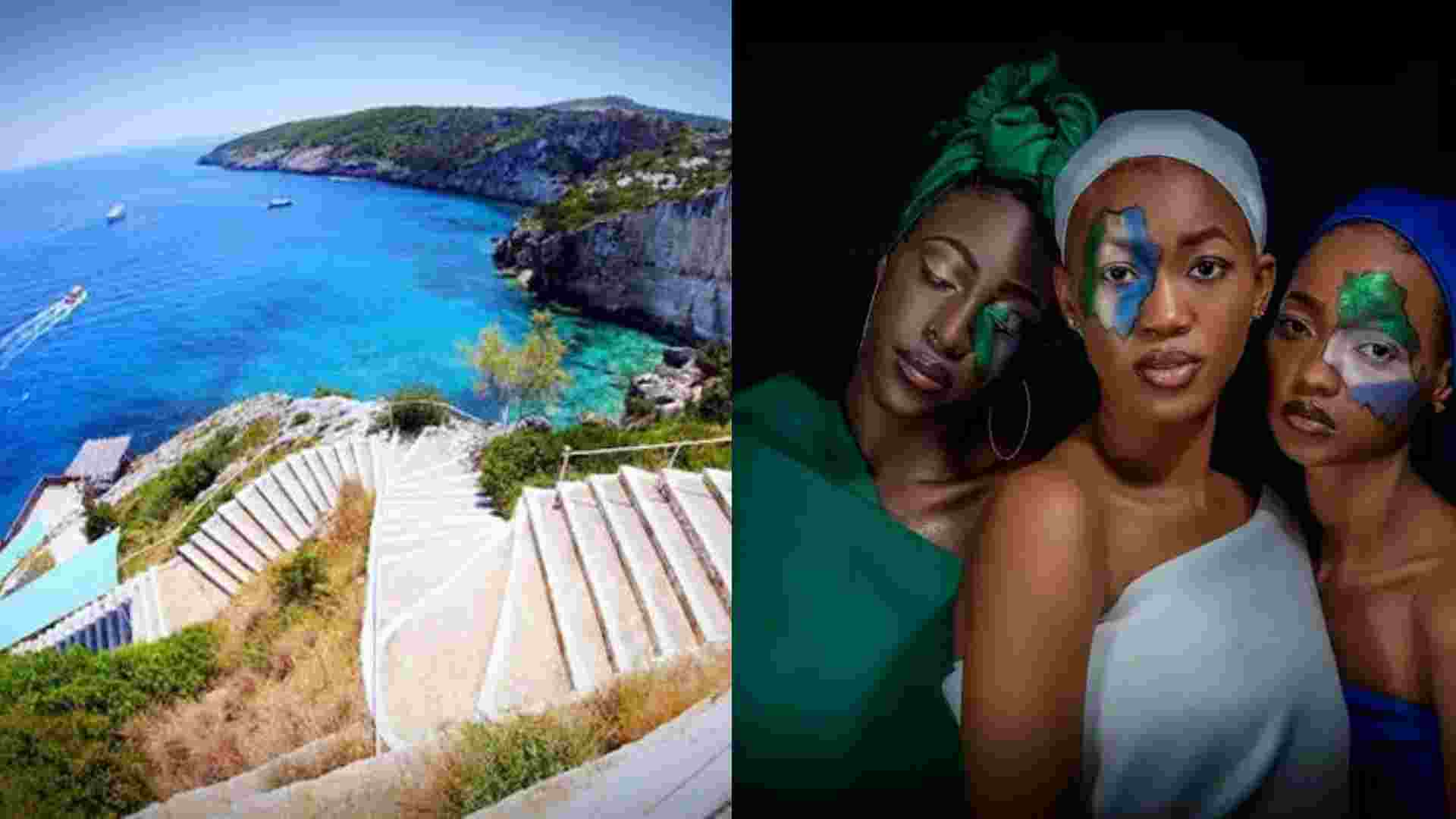Sierra Leone is a country in West Africa, on the Atlantic Ocean. It’s known for the white-sand beaches lining the Freetown Peninsula. The capital city, Freetown, commemorates the nation’s slave-trade history with the Cotton Tree landmark and King’s Yard Gate. Both were known as places of refuge for returned slaves in the 18th and 19th centuries. Nearby Bunce Island was a key departure point during the slave trade
[whatsapp_group]
Sierra Leone is one of the most peaceful countries in Africa and the world. Business Insider ranked Sierra Leone as the fourth most peaceful country in Africa.
[whatsapp_group]
Sierra Leone is endowed with beautiful landscape, rich and diverse culture, and tradition, vast natural resources, amazing and breathtaking beaches suitable for tourists and expatriates. The beautiful West African nation is one of the most religiously tolerant countries in the world. Religious violence is very rare in Sierra Leone; unlike other countries. This makes Sierra Leone one of the best places to do business.
Here are the Top 30 Interesting Facts About Sierra Leone.

1. Sierra Leone was the center for British Colonial Administration and Business in West Africa.
2. In 1808, Sierra Leone became the first crown colony of Britain in Sub–Saharan Africa.
3. Sierra Leone is the first country in West Africa to have a railway in 1898.
4. Sierra Leone is the first to have electricity and broadcast services in the sub-region in 1927.
5. Sierra Leone is the first country in Sub-Saharan Africa to have an airline in 1927.
6. Freetown, the capital of Sierra Leone became the first city in West Africa to have an airport at Hastings where a plane, for the first time, landed directly from England and returned to England via The Gambia in 1927.
7. Sierra Leone is the first to have a tropical hospital in West Africa in 1925.
8. Sierra Leone is the first country In West Africa to have a primary school back in 1794 and a university (Fourah Bay College) in 1827.
9. The first hospital for the mentally retarded in West Africa was established in Freetown, the capital of Sierra Leone, in 1920.
10. Sierra Leone is the first country in West Africa where Motor Vehicles were introduced in 1912.
11. Sierra Leone is the first to have an English Legal system with black judges and jurors.
12. Sierra Leone’s Supreme Court was the final court of Appeal for Ghana, Nigeria, and The Gambia.
13. In 1843 the whole of Ghana, Nigeria, and The Gambia was placed under the administration of Freetown.
14. In 1792 Sierra Leone became the first country in the world where women first cast votes in an election before women began to vote in Britain in 1918.
15. In the 1800s, seventeen Sierra Leonean Priests and a Bishop went to Ghana and Nigeria as missionaries to spread Christianity and established churches there.
16. In 1893 Freetown Municipality became the first city in West Africa to have a Mayor.
17. Freetown is the first city in West Africa to have a Banking system called ‘Bank of British West Africa’.
18. Sierra Leone is also the first country in West Africa to have a post office.
19. Archaeological evidence suggests Sierra Leone has been inhabited for thousands of years with successive waves of invaders as well as immigration from inland peoples making up today’s diverse population.
20. The North American slave trade was essentially launched from the site of modern-day Freetown in 1560. By the 18th century, Portuguese and British trading settlements lined the coast.
[whatsapp_group]
21. Established in 1670, Bunce Island, a historical island located around 20-30 miles from the capital Freetown, was one of more than sixty slave-trading forts on the West African coast. Bunce Island remains an important African monument to the North American slave trade.
22. Sierra Leone’s capital city, Freetown, was founded as a home for repatriated and rescued former slaves in 1787.
23. Sierra Leone remained a British colony until 1961 when it gained independence from England.
24. The colors of the national flag of Sierra Leone are Green, White, and Blue. On April 27, 1961, the day Sierra Leone became independent from the British, the Green, White, and Blue were officially hoisted. The green stands for agriculture, mountains, and natural resources. The blue stands for the symbol of hope that the natural harbor in Freetown will make a contribution to peace in the world. The white stands for unity and justice.
25. The 1987 Bounty chocolate bar “Taste of Paradise” commercial was shot in Sierra Leone.
26. Freetown was home to the first institution of higher learning in modern sub-Saharan Africa after the collapse of the university at Timbuktu. Fourah Bay College opened in 1827 and at the time was the only alternative to Europe and America for British colony West Africans who wanted a university degree (source: UNESCO).
27. The national anthem of Sierra Leone was written by Clifford Nelson Fyle and composed by John Akar. The anthem was later adopted as the country’s national anthem in 1961 when the country became independent replacing “God Save The Queen”.
28. The fourth-largest gem-quality diamond and the largest alluvial diamond ever discovered, Star of Sierra Leone, was found in Sierra Leone. Star of Sierra Leone, a 968.9-carat (193.78 g) was discovered on February 14, 1972, in the Diminco alluvial mines in Koidu, a diamond mining city in Kono district.
29. Sierra Leone once served as a convoy station during World War 2, with up to 200 cargo and military vessels moving in and out of the country’s well-protected harbor at the height of wartime activities.
30. Sierra Leone is one of the best places to visit.
NOTE: Every effort has been made to verify these facts about Sierra Leone. However, if you find an error or have any questions, please contact us via WhatsApp +23230448961 or email us at info@theafricandreamsl.com
Copyright © The African Dream








